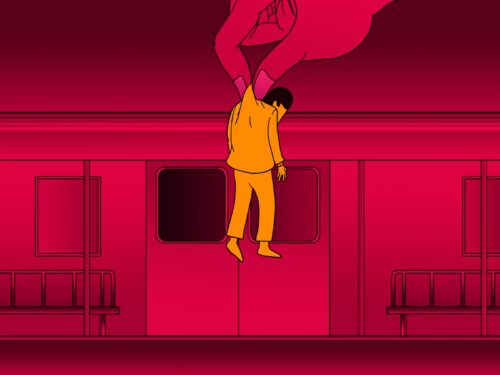China Academy of Art is yet another Chinese school that thinks women are to blame for sexual attacks
The handbook faced almost immediate backlash, with a raft of critics condemning the university for perpetuating a sexist presupposition that women are in part responsible for any danger faced because of something about them — be it their lifestyle, behavior, or choice of clothing.

China Academy of Art, a prestigious fine art college in Hangzhou, Zhejiang Province, has become the subject of social media backlash after making what many perceived to be “sexist” suggestions about how female students should dress and act to avoid sexual assault on campus.
The controversy erupted this week when a screenshot (in Chinese) of the school’s “freshmen safety knowledge handbook” was shared on Weibo. In a chapter about sexual assault prevention, the college listed a string of “factors within women” that could potentially provoke unwanted sexual advances from men.
The factors include “focusing too much on looks and material possessions,” “having a pretty appearance and frivolous attitude,” “timidness and inability to exercise self-defense,” and “having weak willpower and being easily tempted.”
It also noted that sexual crimes are most likely to take place in the summer and during the nighttime, and that they tend to happen at places such as laboratories and dormitories.
The handbook faced almost immediate backlash, with a raft of critics condemning the university for perpetuating a sexist presupposition that women are in part responsible for any danger faced because of something about them — be it their lifestyle, behavior, or choice of clothing. “This is yet another example of wrong-headed victim-blaming,” a Weibo user wrote (in Chinese).
Some critics also argued that by singling out female students and giving them sexist advice on safety, the school was absolving itself from the responsibility to educate male students about boundaries and sexual consent. “The type of person who is willing to force themselves on others is not going to be put off by someone’s clothing or the way she talks. What we need is better and effective education about consent and what constitutes sexual assault for college boys,” a Weibo user commented.
Despite the widespread backlash online, the university seemed to be unapologetic. On September 24, a spokesperson from the school’s security department, which was in charge of writing the handbook, told (in Chinese) the Xiaoxiang Morning Post that the controversial chapter was “taken out of context.”
Meanwhile, some observers discovered (in Chinese) that the problematic handbook was not a completely original work by China Academy of Art. Instead, the book borrowed heavily from a “college student safety manual” produced by the Zhejiang Province Association for Higher Education, which has inspired similar handbooks used by other Chinese colleges, such as Zhejiang University in 2018.
In what seems to be an preemptive move to prevent on-campus sexual misconduct, a growing number of Chinese schools have made female students targets in their safety education initiatives while not talking to male students directly about sexual assault and consent. For example, in August, Guangxi University was embroiled in a similar controversy after telling female students not to wear revealing clothes in a safety guide.






